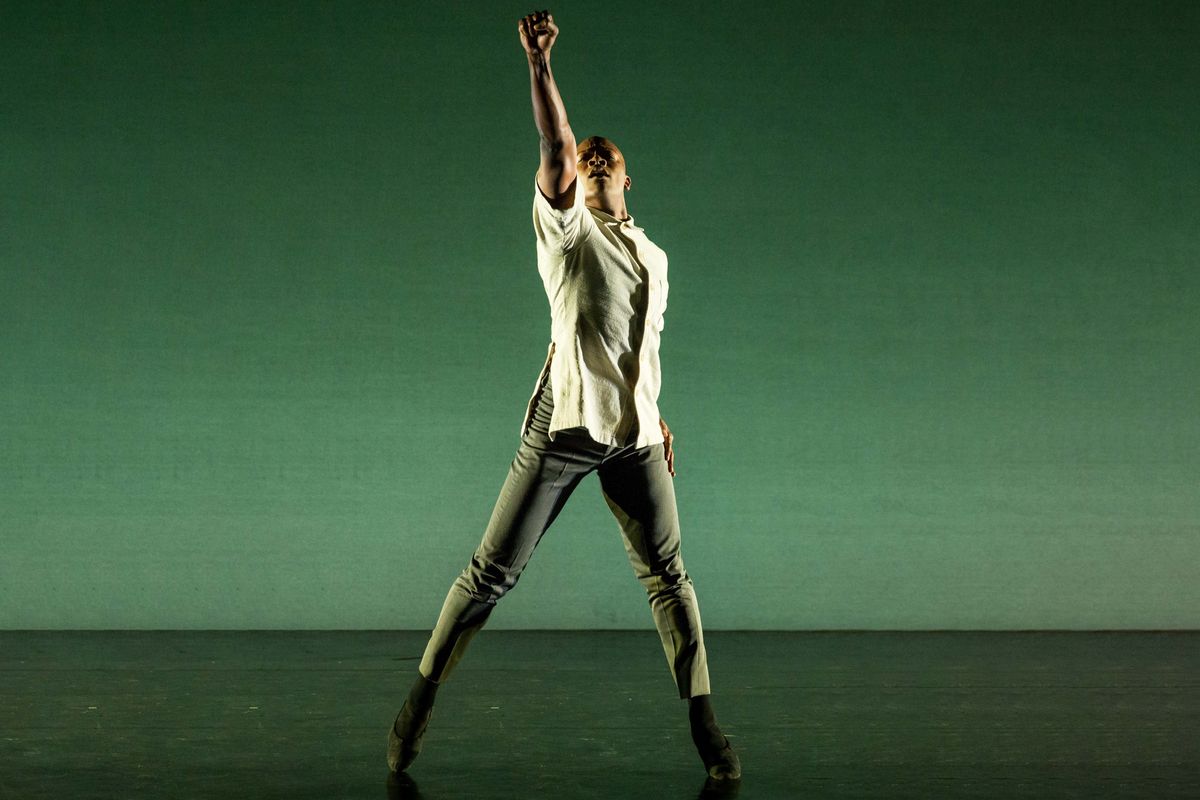The Black Iris Project Is Making Black Story Ballets by Black Artists & for Black Audiences
As a Black ballet student, choreographer Jeremy McQueen never felt personally connected to story ballets, much less saw himself represented onstage. Later, as a public school teaching artist for American Ballet Theatre and The Ailey School, McQueen witnessed widespread disinterest in ballet among his students from BIPOC communities. “Working with a diverse demographic, I saw more interest when I was able to connect ballet to their own lives,” says McQueen.
During the country’s ongoing battle for racial equality, ballet companies have been called upon to increase commitments to diversity, equity and inclusion work within schools, companies, administrative staffs and boards. But rather than wait for fulfilling opportunities, McQueen founded his own collaborative, The Black Iris Project, in 2016. As McQueen states on the collective’s website, The Black Iris Project is “where Black lives become works of art.”
His 2018 solo, A Mother’s Rite, particularly resonates now, as it follows a mother’s grief after her son’s murder, drawing from ongoing police brutality. The film adaptation featuring Alvin Ailey American Dance Theater artist Courtney Celeste Spears received an Emmy Award nomination. “I tell stories that outline the Black experience, something I had never seen in ballet,” says McQueen. “We are unapologetically Black.”
In addition to a revolving collaborative of Black ballet dancers from companies including ABT, Complexions Contemporary Ballet, Brooklyn Ballet, Dance Theatre of Harlem, Ballet Hispanico, New York City Ballet, LA Dance Project and San Francisco Ballet, McQueen works with Black lighting designers, playwrights, poets, costume designers, composers and visual artists.
“I don’t create work for the white gaze, I create for my community so they can see their histories and lives reflected onstage. We amplify voices historically left out,” explains McQueen. “It feels like many people think classical ballet should remain untouchable—like all the monuments coming down in our country—but the only way to involve a more diverse community is to shake up the entire experience.”
McQueen has become increasingly outspoken against institutional racism and microaggressions in the dance community, posting his “Rockettes Revelation” on June 5, announcing his decision to cut professional ties with the organization due to their “public silence in support of Black lives” following the murder of George Floyd.
He also acknowledges frustrations as the recipient of The Joffrey Ballet’s 2013 “Winning Works” Choreographers of Color award, citing minimal mentorship or support. “If companies have diversity initiatives but few or no Black people on staff, it feels performative,” says McQueen.
To commemorate the anti-apartheid activist and first Black South African president Nelson Mandela’s posthumous 102nd birthday this Saturday, July 18, BronxNet TV will televise the Black Iris Project’s ballet based on Mandela’s life, MADIBA. The one-act narrative ballet was choreographed by McQueen and features David Adrian Freeland Jr. as Mandela and Daphne M. Lee as Winnie Mandela, with an original composition by Black composer Carman Moore.
Originally performed at New York Live Arts for the collective’s 2016 inaugural season, the ballet was curated by Misty Copeland during The John F. Kennedy Center for the Performing Arts 2017 Ballet Across America festival. “Along the way there were many people who doubted me, but when Misty took interest before anyone knew what The Black Iris Project was, it restored my faith,” McQueen says. “It often requires receiving big awards for companies, presenters, foundations and gatekeepers to give Black choreographers a chance. We need people to take more chances on less guaranteed talent.”
Editor’s note: In order to honor McQueen’s original intent and voice, two quotes that had been deleted in the editing process were added back in after this story was originally published.





